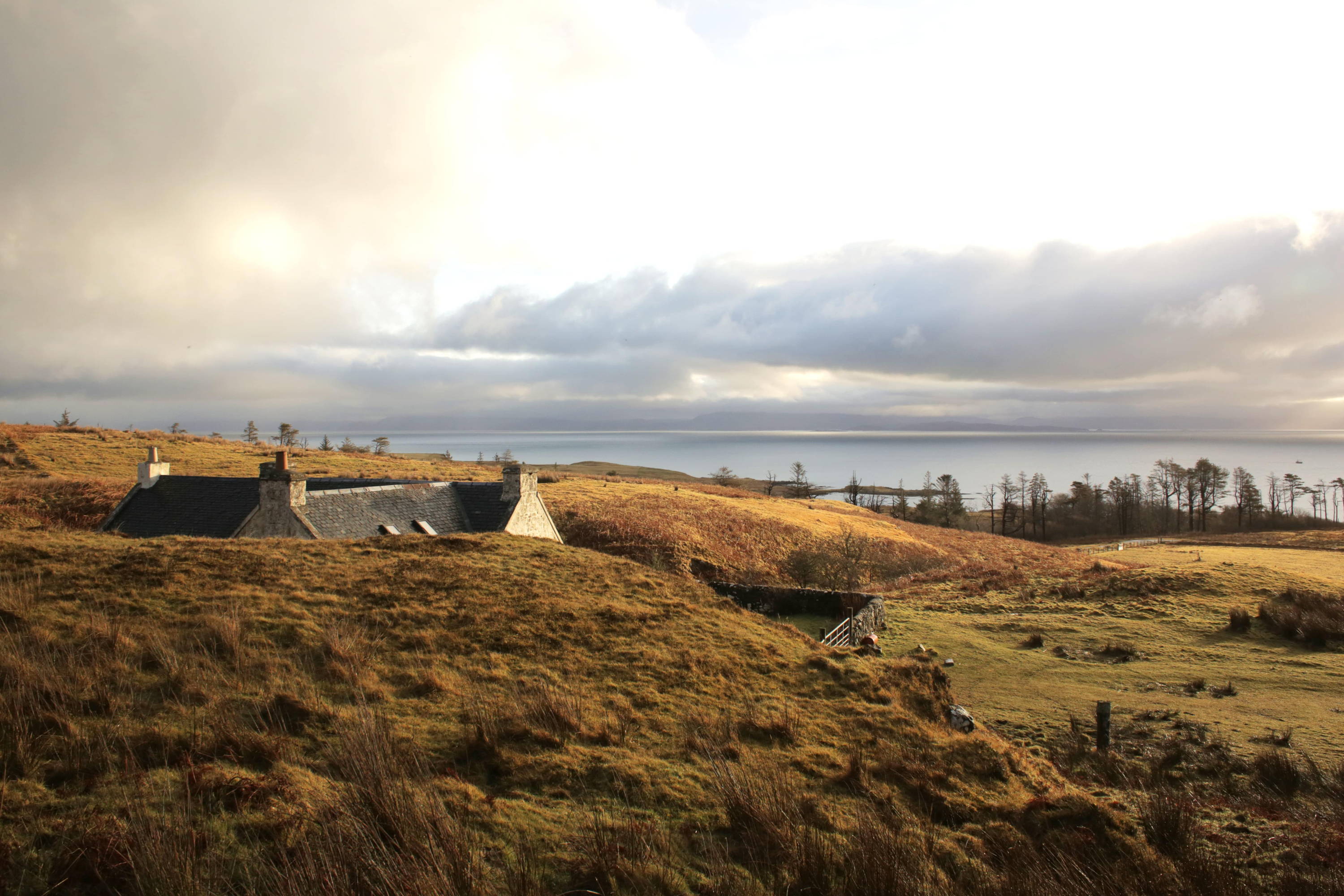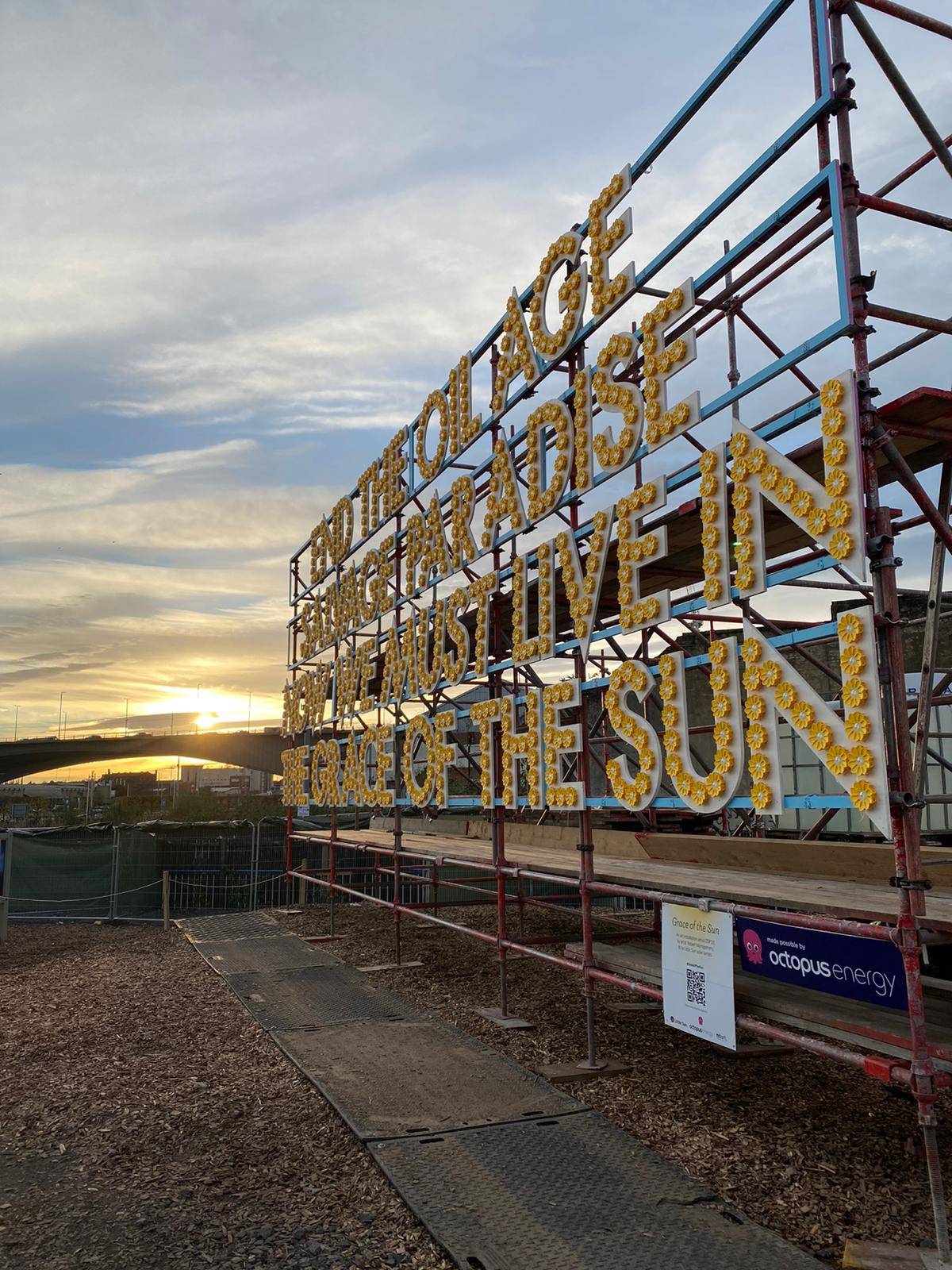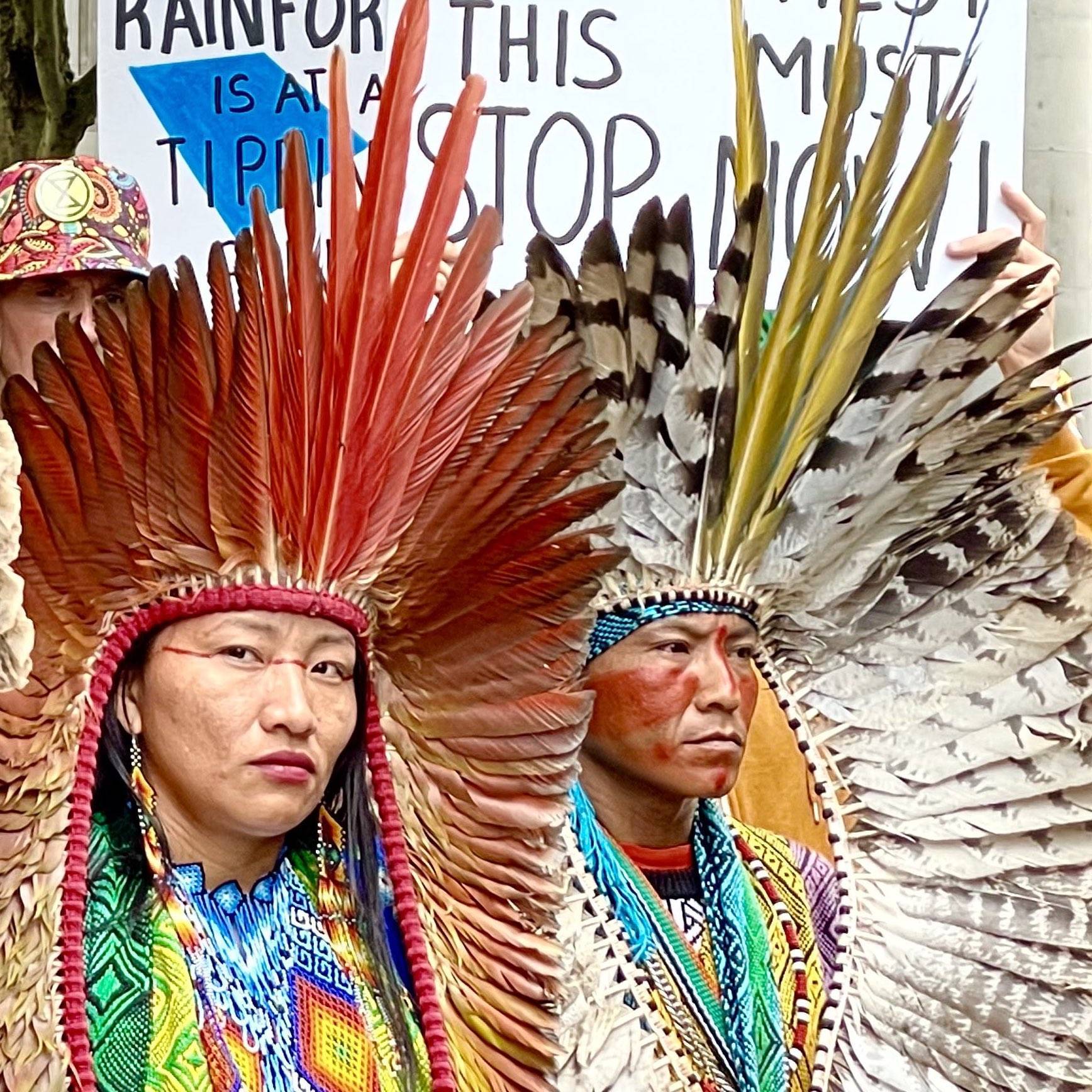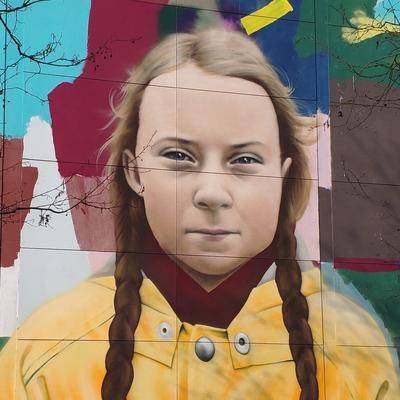
Image: Carlo Paloni
Goal 13: Climate Action
The COP26 #TOGETHERBAND Update
The day’s biggest stories from the world’s vital climate conference
By hannah rochell
12 november 2021
FRIDAY 12th NOVEMBER
1. Activists dub COP ‘a performance’
Hundreds of campaigners walked out of the convention centre carrying blood-red ribbons to represent the crucial red lines crossed by COP26 negotiations. On the last day of the climate summit, protesters gathered on the street. Indigenous activist Ta’Kaiya Blaney of the Tla A’mihn Nation of British Columbia, Canada, said ‘COP26 is a performance. It is an illusion constructed to save the capitalist economy rooted in resource extraction and colonialism. I didn’t come here to fix the agenda – I came here to disrupt it.’
2. COP26: decisions and resolutions
The moment we’ve all been waiting for: the draft of the COP26 deal, the most important document that will emerge from COP26 was released this morning. Unlike the Paris Treaty Accord from 2015, it’s set to be a series of decisions and resolutions (although it won’t be legally binding). Some positive takeaways include the recognition of the roles of Indigenous people in fighting climate breakdown and conservation as well as the plan to phase out coal and fossil fuel subsidies. The final draft is still a work in progress and it is expected that the climate summit will be extended an extra two days whilst world leaders agree on a deal. Read the full text here
3. Renewable energy-powered island
The Isle of Eigg, a tiny Scottish island with a population of just 105, has shown that it is possible to rely almost entirely on renewable energy sources. As COP wraps up just a few hours south of the island, the community living on the Isle of Eigg has finished setting up their own off-grid energy system powered by the Earth’s elements: wind, water and sun. Find out more about #TOGETHERBAND’s campaign to switch to renewables and CLEAN POWER here.

Isle of Eigg | Image: Shutterstock
THURSDAY 11th NOVEMBER
1. Vanessa Nakate holds delegates to account
Speaking at an event addressed by UN secretary general António Guterres this afternoon, Ugandan activist Vanessa Nakate, who has been a prominent voice for the past two weeks, didn’t hold back any punches. She said:
‘There have been 25 Cops before this one. And every year, leaders come to these climate negotiations with an array of new pledges, commitments and promises. And as each Cop comes and goes, emissions continue to rise. This year will be no different. CO2 emissions are forecast to jump in 2021 by the second biggest annual rise in history. So, I hope you can understand why many of the activists who are here in Glasgow – and millions of activists who could not be here – do not see the success that is being applauded within these halls.’
2. UK, US and Canada refuse to pledge to end oil and gas production
The Beyond Oil and Gas Alliance (BOGA) is a coalition of countries which is going to set a specific date when they will all stop producing oil and gas, and will also stop giving permits for new extraction or exploration of them. They are Costa Rica, Denmark, France, Ireland, Québec, Sweden, New Zealand, Italy and, perhaps most notably, Greenland, which still has large reserves of unexplored fossil fuels. Scotland is also in talks and expected to join.
The UK, US and Canada have not signed up but regions within them - Wales, California and Quebec - have. Unsurprisingly, big producers including Russia, Australia and Saudi Arabia are also absent from the list, and while it is essential that these countries also drastically reduce their fossil fuel production, it’s hoped that the BOGA countries will act as standard-setters and a path for others to follow.
3. Scottish Power’s sponsorship still a sticking point
Five activists from an environmental group called Scientist Rebellion this afternoon glued themselves to the ground in front of the offices of Scottish Power and have now been arrested. The company, which is one of the major sponsors of the conference, has been accused of greenwashing with its claims to be ‘working on a better, greener future to help fight climate change’, in spite of the fact that it is a subsidiary of Spanish utility firm Iberdrola, which the group claims has continued to burn fossil fuels around the world and blocked action on climate change.
WEDNESDAY 10th NOVEMBER
1. Youth activists filing a climate legal suit
A group of 14 youth climate activists including Greta Thunberg, Ranton Anjain and Litokne Kabua from the Marshall Islands, Ridhima Pandey from India, Alexandria Villaseñor from the US and Ayakha Melithafa from South Africa, are asking for the UN to declare a systemwide climate emergency and rank it as a global level 3 emergency, the highest possible UN category.
Level 3 is the same status that was given to the COVID-19 pandemic, which led the activists to argue in their petition that ‘the climate emergency – which threatens every person on the planet into the foreseeable future – is at least as serious a threat as a global pandemic and similarly requires urgent international action.’
It is understood that the UN has already seen a draft of the petition but has not yet responded. We wait with baited breath...
2. Boris finally gets the train
After being criticised last week for making the short journey back to London from Glasgow by private jet, UK Prime Minister Boris Johnson today arrived back in the city by train. At the station, he met West Midlands mayor Andy Street, who showed off some sustainable trains that were made in the county; the country’s first hydrogen-powered train and the first electric battery train.
3. Having a gas
A group of activists called Gastivists had the last laugh last night when COP organisers weren’t happy with a projection the group put on the Glasgow venue. The group has been calling out greenwashing and the use of fossil fuels. In an attempt to block out the Gastivist message, whoever was in the official projection room tried using rainbow colours and patterns (which the activists argued just made it look cooler) and eventually just wrote the words ‘go away’ in what can only be described as a bit of a rubbish font. Read the whole thread below.
TUESDAY 9th NOVEMBER
1. #TOGETHERBAND hosts Indigenous voices at COP
In Glasgow this morning, #TOGETHERBAND hosted a round table talk - Climate Justice: Next Generation and Indigenous Voices from the Front Line. Our co-creator Cameron Saul and Carlo Pereira from UN Global Compact Brasil invited five young Indigenous and climate activists to meet business leaders and UN representatives to discuss how to power the next generation of Indigenous peoples and the survival of the Amazon rainforest in the face of the climate crisis.
‘We need to listen to the knowledge of Indigenous peoples and the knowledge of youth, and sometimes the youth is not taken seriously,’ said Txai Suruí, an Indigenous activist of the Paiter Suruí people (pictured above).
She was joined by: Samela Awiá, artisan, presenter and environmental activist; Marcelo Rocha, executive director of Ayika Institute which has helped bring Indigenous peoples to the conference; Amanda Costa and Mahryan Sampaio, both UN Youth Ambassadors and activists.
2. Where are the women at COP?
Today was Gender Day at COP26, but the irony is not lost on many that we have been led into the climate emergency by the richest nations and businesses, which are in turn led by almost exclusively men; women are still a minority when it comes to COP negotiations.
Thankfully (finally!), speakers today included US congresswoman Alexandria Ocasio-Cortez, US House Speaker Nancy Pelosi and Scotland’s first minister Nicola Sturgeon, who was not given a speaking slot at the main conference last week, despite the fact that it is taking place in her home city. (In fact, back in 2019 Boris Johnson told the Conservative Party Conference that he didn’t want her ‘anywhere near it’ in an attempt to exclude her from COP altogether.) ‘We must make sure that the voices of women are at the centre of creating and implementing the solutions to climate change,’ she said today. Women are well represented elsewhere however, with the majority of high-profile climate activists being young women.
3. Who is Little Amal?
Arriving in Glasgow today was Little Amal, a 3.5m tall puppet that has travelled 8,000 miles across Europe from Turkey to Scotland to highlight the plight of Syrian refugees. Made by the team behind War Horse, this not-so-little girl aims to spark conversations around equality and the climate.
MONDAY 8th NOVEMBER
1. Obama: ‘We are nowhere near where we need to be yet.’
Former US President Barack Obama took to the stage today at COP26, where he criticised China and Russia for showing a ‘dangerous lack of urgency’ by not attending the event in Glasgow. He went on to say that most nations have failed to be ‘as ambitious as they need to be’ in order to deal with the climate crisis and urged nations to work together. ‘It’s a reminder that if you all want to paddle a canoe you better all be rowing in the same direction and at the same time, every oar has to move in unison, that’s the only way that you move forward.’
Meanwhile, China - which emits more greenhouse gases than any other country in the world - has defended its contribution to addressing the emergency, pointing out that even though the country is changing its entire system in the energy sector as well as across society and the wider economy, it’s rarely acknowledged. ‘Unfortunately, China cannot change the China narrative,’ said Wang Yi, a senior adviser to the Chinese delegation.
2. Setting a low bar
The Obama hype is all well and good, but it comes on the same day that the first draft of the Glasgow final decision text is released; when finalised this becomes the document that world leaders will agree to and sign at the end of the summit. Greenpeace has described the draft as ‘exceptionally weak’, especially since it doesn’t mention phasing out fossil fuels at all. This is in spite of the majority of experts advising that there cannot be any new coal, oil and gas projects if we are to limit global heating to 1ºC. It’s particularly worrying because the first draft COP text is usually ambitious to allow room for negotiations, so this appears to be setting the bar very low.
3. Rich countries urged to pay up
Climate activist Vanessa Nakate was amongst a group of protesters who staged a demonstration to coincide with Obama’s speech, holding banners with the words ‘show us the money’. The US is one of many nations that has failed to deliver the $100 billion promised to poorer countries to aid with the climate crisis. Small island nations and developing countries are often the first to be affected by climate change, as well as being less well equipped to adapt to change. Nakate also took to Twitter to address the former president directly: ‘Mr @BarackObama, I was 13 when you promised $100B #ClimateFinance. The US has broken that promise, it will cost lives in Africa. Earth's richest country does not contribute enough to life-saving funds. You want to meet #COP26 youth. We want action. Obama & @POTUS #ShowUsTheMoney’
FRIDAY 5th NOVEMBER
These are the voices that really matter at COP26
Today was Youth Day in Glasgow, so that’s exactly who we’re going to focus on. Marching through the city centre to George Square for the #FridaysforFuture demo were 30,000 young climate protestors who gathered to hear activists including Vanessa Nakate, Mikaela Loach and Greta Thunberg, as well as a group of Indigenous peoples who made speeches and performed songs from their cultures.
Here’s what some of them had to say.
Adriani Maffioletti from Brazil said that Indigenous peoples are ‘land defenders crucial to the fight.’ Describing colonisation she said: ‘They want everything. You, your home, your territory, your life.' Of President Jair Bolsonaro she said ‘Liar, liar - our forests are on fire.' Ending her powerful speech she said ‘no one is illegal on a stolen land’.
Evelyn Acham from Uganda said ‘We’re here to demand climate justice from our leaders. To ask why our voices are left behind. We emit very little C02 [in Uganda]. But it’s our people that are dying from floods.’ Finally, she added ‘money will be useless on a dead planet.’
Michaela Loach from the UK called on everyone to use their power saying ‘Change is not passive, we must keep up the momentum. The power is with the people, the power is with all of us.’
Jon Bonifacio from West Papua in Papua New Guinea reminded the crowd that ‘Indigenous peoples live in 5% of the world but protect 80% of the world’s biodiversity.’ Describing his childhood in which he fled from West Papua to live in Holland, he asked the crowd ‘Imagine if your father was murdered for upholding your culture.’
Vanessa Nakate from Uganda pointed out that ‘while the global south is on the frontline of the climate crisis, they are not being heard. We cannot keep quiet about climate justice.’ She reminded everyone on the march that ‘No voice is too small to make a difference.’
Greta Thunberg from Sweden said that ‘It is not a secret that COP is a failure. It should be obvious that we cannot solve a crisis with the same methods that got us into it.’ She also criticised the way the event had become a PR stunt. ‘This is no longer a climate conference. This is a Global North greenwash festival.’
THURSDAY 4th NOVEMBER
1. Are we phasing out coal too late?
Coal is an incredibly dirty fuel, and is the single largest source of global temperature rise, responsible for 0.3°C of the current 1°C average rise globally. Today, more than 40 countries agreed to phase out coal by the 2030s and 40s, but critics say it’s too little too late; in order to stay below 1.5ºC, experts reckon that we should be phasing coal out before 2030.
And it’s not the timing that’s an issue; while many major coal-using countries, including Canada, Poland, South Korea, Ukraine, Indonesia and Vietnam, have pledged to phase out the use of coal to generate electricity, some of the world’s biggest coal-dependent economies, including Australia, China, India and the US haven’t signed up to the deal.
‘This is not a game-changer,’ said Elif Gündüzyeli, senior coal policy coordinator at the campaign group Climate Action Network Europe. ‘A 2030 phaseout deadline should be a minimum, and this agreement doesn’t have that. Coal is already expensive [compared with renewable energy] and no one wants to put money in coal any more.’
2. Fossil fuel companies are sponsoring COP: oh, the irony
When team #TOGETHERBAND checked into our AirBNB for our stint at COP, we were shocked to discover that our wifi was powered by Shell. Yep, that’s Shell - one of the biggest climate polluters in the world. Who knew it even did wifi? And at the event itself, guests and campaigners have been calling out the organisers of COP26 for the fossil fuel sponsors whose logos are emblazoned across screens and posters in the official venues. Check out Ayisha Siddiqa, co-founder of @pollutersout and Fossil Free University, who has taken over @theslowfactory Instagram stories to report on this and other greenwashing acts taking place in Glasgow. ‘As of right now, COP26 is looking like one of the most inequitable, white and segregated cops to ever occur,’ she said today on Instagram.
3. Culture at the Landing Hub
There are little corners of creativity all over the city. We headed to The Landing Hub, a space on the riverside, to watch a short film about the amazing group of people at Denham Protection Camp peacefully trying to save woodlands and waterways in the path of HS2. Outside, an installation of Little Sun solar lamps spells out a mantra to end the oil age and live life in the grace of the sun.

WEDNESDAY 3rd NOVEMBER
1. Bankers are the new Swampys
In the 1990s, well before the age of social media, high profile climate campaigners came in the form of Swampy, a young man (real name Dan Hooper) who became a household name after occupying trees and tunnels in an attempt to stop new roads being built and destroying the countryside.
And today, in his speech to the COP26 delegates, the president of the summit Alok Sharma referenced the Britpop era activist when he called governments, bankers and boardrooms ‘the new Swampys’. Swampy wasn’t available to comment (he’s currently spending his 20th day in a tunnel protesting against the HS2 rail project), but his fellow activist Dr Larch Maxey wasn’t impressed with Sharma’s speech.
‘To say we are all Swampys is appropriation, it is attempting to take resistance, to take the truth and commercialise it and commodify it for the corporate agenda,’ he said. ‘If only what he was saying was true. If only we were all Swampys – then we wouldn’t be in the greatest threat humanity has ever faced.’
2. Tarateeno the Marvellous arrives in Glasgow
It took Tarateeno the Marvelous and his owners Michael Ransley and Phoebe Beedell 18 months to get to Glasgow for COP26. That’s because he is a horse and he pulled them by cart, carefully meandering from Cornwall on country roads so as not to affect the traffic. They are there to ask for an end to the use of fossil fuels; Tarateeno’s cart is emblazoned with the Greta Thunberg quote ‘no more blah blah blah’.
3. Giving Earth a sporting chance
Leading sport organisations today agreed to reach net zero by 2040, and to halve greenhouse gas emission by 2030. FIFA, the Premier League and Formula E are amongst those who have signed up to the pledge, which is headed up by the Sports for Climate Action Framework. It was just three weeks ago that Formula 1 team Williams made its own pledge to be climate positive by 2030, following the lead of Lewis Hamilton’s team Mercedes, which has had a net zero carbon footprint since 2020.
TUESDAY 2nd NOVEMBER
1. The big methane deal
We hear a lot about the damaging effects of CO2 in our atmosphere, but according to the latest IPCC report, scientists believe that methane comes a close second, accounting for around half of global warming since the 19th Century. Methane is produced by a number of factors, including the fossil fuel industry, landfills and agriculture (namely, cow burps), and although it breaks down more quickly than CO2, it is more potent.
Which is why it’s great news that leaders at COP26 have today agreed to cut methane emissions by 30% by 2030 in what is now known as the Global Methane Pledge. 90 countries lead by the US have signed up, but major emitters including China, Russia and India have yet to agree to join. Even so, it could still make a big difference, potentially helping the world to avoid heating by 0.3ºC (remember, our target is to keep global heating below 1.5ºC). European Commission president Ursula von der Leyen described methane as ‘the lowest hanging fruit’ and said that the greatest potential for lowering its levels is in the energy sector.
Overnight, in another groundbreaking agreement that was described as a ‘Paris moment for trees’, more than 100 world leaders agreed to stop and reverse deforestation by 2030. Russia, China, Indonesia, and perhaps most notably, Brazil, are amongst those who have signed the pledge.
2. It’s Leonardo DiCOPrio
Hollywood has landed in Glasgow, as Leonardo DiCaprio, long-time climate campaigner, arrived at COP. Appointed a UN climate change representative in 2014, the actor has donated millions to environmental organisations and has produced a number of documentary films about the environment including A Plastic Ocean and Ice On Fire. He was spotted at the COP26 conference centre today. Leo has previously described Great Thunberg as ‘a leader of our time’ when the pair met in 2019; we will be watching with interest to see if he joins her climate strike in Glasgow this Friday.
3. UK is Fossil of the Day
This ironic prize, organised by Climate Action Network International, has been awarded to the UK in response to delegates being forced to queue for two hours yesterday to gain access to the venue. It’s a blow to organisers who had billed Glasgow as ‘the most inclusive COP ever’, and comes on the same day that Prime Minister Boris Johnson issued an apology to Karine Elharrar, Israel’s minister of energy and water resources, who was denied entry as a wheelchair user to the venue yesterday.
MONDAY 1st NOVEMBER
1. Boris Johnson quotes Greta Thunberg
At his COP26 welcome speech this morning, UK prime minister Boris Johnson quoted Greta Thunberg’s mocking of world leaders for their ‘empty words and promises’. Speaking of previous COPs in Copenhagen and Paris, he said that unless progress is made at the summit, ‘all those promises will be nothing but blah blah blah - to coin a phrase’.
And where other world leaders stuck to an arguably more appropriate serious tone (United Nations Secretary General António Guterres said that ‘we’re digging our own graves’, while Barbados Prime Minister Mia Mottley warned that a rise in temperature of ‘two degrees is a death sentence’) the PM continued his more colourful speech by referencing 007: ‘Not all of us necessarily look like James Bond but we have the opportunity, the duty, to make this summit the moment when humanity finally began – and I stress began – to defuse that bomb’.
His words certainly didn’t stir everyone, and many would argue that Mr Johnson needs to shake up his own actions to the climate emergency; he’s yet to oppose the controversial proposed Cambo oil field, and last week claimed that recycling plastics ‘doesn’t work.’
2. Who is Txai Surui?
One of today’s opening speeches was from Txai Surui, an Indigenous climate activist from the Brazilian Amazon. This 24 year-old, who studied law and works to protect Indigenous communities’ rights and territories, is one of six young climate activists to sue the Brazilian government for altering its 2005 carbon baseline to meet carbon reduction goals set by the Paris Climate Agreement. ‘Indigenous peoples are in the front line of the climate emergency and we must be at the centre of the decisions made here,’ she said today.
3. Campaigners out in force to have their voices heard in Glasgow
Greta Thunberg and Vanessa Nakate chatted to Scotland’s first minister Nicola Sturgeon today, who said that the voices of young people like them ‘must be heard loudly and clearly’. However, Thunberg later spoke to a rally in Festival Park in Glasgow, saying that world leaders were ‘pretending to take our futures seriously’. Meanwhile, Greenpeace’s Rainbow Warrior ship, carrying campaigners from Namibia, Uganda, Mexico and Bangladesh, has been given permission from Police Scotland to sail up the River Clyde to the conference.
100% of profits from the sales of #TOGETHER products go to charities that advance the Sustainable Development Goals. Find out more here.


